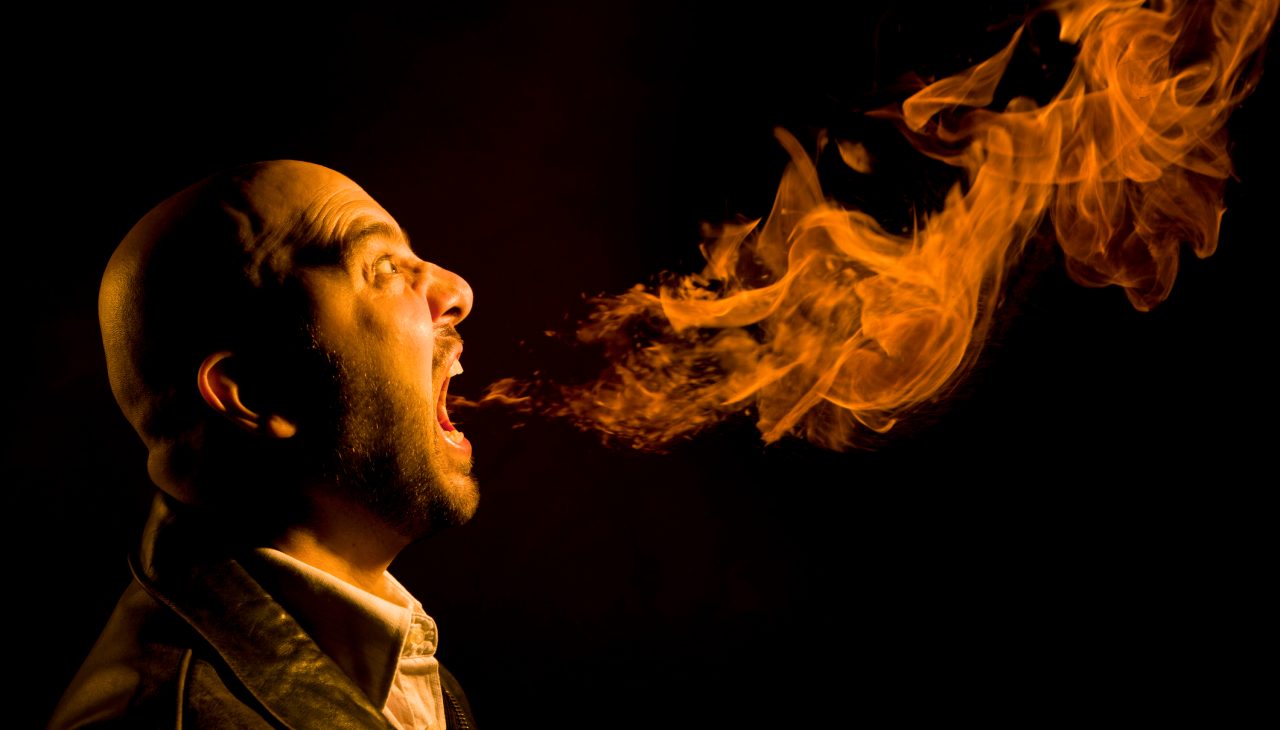What Is GERD (Gastroesophageal Reflux Disease)?

A dry cough may not be a cold or the flu but inflammation in your esophagus. You may have gastroesophageal reflux disease (GERD). Here’s what you should know.
We think of coughs, even dry coughs, as a sign of an infection or possibly an allergy. But sometimes the issue is acid from your stomach landing in the wrong place.
YOU MIGHT ALSO LIKE: Gastroesophageal Reflux Disease Symptoms
What is GERD?
GERD (gastroesophageal reflux disease) or acid reflux doesn’t always announce itself with its most familiar symptom — heartburn, that scorched burning feeling in your chest or throat. Dry coughs are another giveaway.
Your esophagus is a tube that leads from your mouth to your stomach. When a muscle at the end of your esophagus does not close properly, the contents of your stomach can leak, traveling upward (reflux). Stomach acid is required for digestion. In your esophagus, which doesn’t have the protective lining in your stomach, the acid causes irritation.
You might wheeze, cough, or have an asthma attack.
You might notice a sour taste in the back of your mouth, especially after a big meal.
How is GERD diagnosed?
GERD can happen to anyone, including infants and children. If a sour taste, heartburn, or coughing occurs more than twice a week, talk to your doctor. You may need an endoscopy, a procedure in which your doctor inserts a thin flexible tube attached to a camera to look inside your esophagus for sores, scarring, or precancerous cells.
Other possible diagnostic tools include:
- A laryngoscopy (a camera looks in your voice box)
- A swallow test with an x-ray
A test of the acid in your esophagus - A test of how things move through your esophagus.
GERD can be serious
Over time, stomach acid damages your esophagus, leading to serious issues, including:
- Esophagitis. The lining of your esophagus swells, making it painful to swallow.
- Esophageal ulcers. Ulcers, sores in the lining of your esophagus, can produce nausea and chest pain. You’ll need medicine for GERD and treatment for the sores.
- Esophageal stricture. If scar tissue builds up, you may find it hard to swallow food and drinks, and you may be at risk for unwanted weight loss and dehydration. The treatment is a procedure to stretch the tube.
- Barrett’s esophagus. About 5 to 10 percent of GERD patients develop precancerous changes in cells, though few will get cancer. With early diagnosis, doctors can remove the cells.
- Esophageal cancer. The most common form is called adenocarcinoma of the esophagus. Although still considered rare, this is one of the fastest growing cancers, more common among overweight middle-aged and older white men.
GERD and asthma
If you have asthma, you’re more likely to get heartburn. Frequent heartburn, on the other hand, can trigger asthma flareups or make asthma symptoms more severe. If acid touches nerves, your airways narrow to keep the acid out. Acid could also enter your lungs, setting off a reaction in your airways.
Signs that GERD is triggering asthma
Allergic asthma usually starts young. If your symptoms came in later years and are worse when you eat, exercise, or lie down, the primary problem may be GERD. Asthma treatments may not work well, and you could cough or speak in a hoarse voice.
How is GERD treated?
You might start with noticing the foods that trigger your symptoms. Keep a food diary with the time of your meal, quantities, and symptoms.
Some common triggers:
- Caffeine
- Chocolate
- Onions
- Peppermint
- Carbonated beverages
- Alcohol
- Citrus and tomato products
Over-the-counter antacids like Mylanta, Rolaids, and Tums provide relief but won’t heal a serious problem and can trigger diarrhea.
But other medications usually work. H-2 receptor blockers like cimetidine (Tagamet HB), famotidine (Pepcid AC), and nizatidine (Axid AR) reduce acid production for up to 12 hours. Medications that block acid production longer and may help heal the esophagus — proton pump inhibitors — include lansoprazole (Prevacid 24 HR) and omeprazole (Prilosec OTC, Zegerid OTC).
Both kinds of medications are available over the counter and by prescription.
Several surgical procedures are available, too.
YOU MIGHT ALSO LIKE: Gastroesophageal Disease Reflux Disease Diet
Updated:
June 29, 2023
Reviewed By:
Janet O’Dell, RN